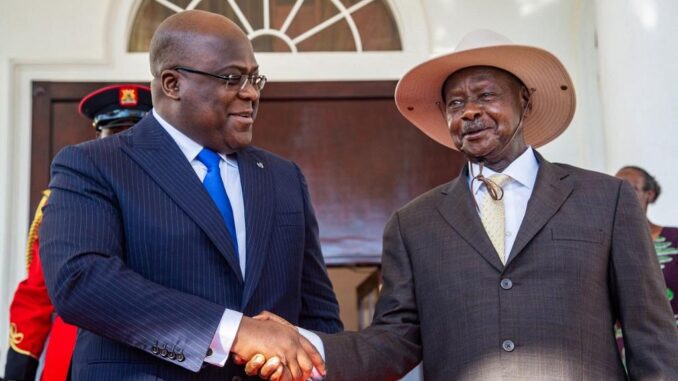
War reparations are at the heart of the proceedings underway at the International Court of Justice since Tuesday. In 2005, the UN court found Uganda guilty of interfering in the affairs of the Democratic Republic of Congo and ordered reparations for damage caused during the Ugandan army’s occupation of Ituri, in particular, between 1998 and 2003. Kinshasa claims over $13 billion from Kampala.
For Uganda, the Congolese claims are “unfounded”, “disproportionate” and “ruinous”. Kampala says the Democratic Republic of Congo has not provided proof of war losses.
The Ugandan state also refuses to pay for all the damage caused between 1998 and 2003, believing that responsibility is largely shared, as the general counsel, William Byaruhanga, explained to the court: “In fact, there were several conflicts involving the armies of at least nine states – Angola, Burundi, Chad, DRC, Libya, Namibia, Rwanda, Sudan and Zimbabwe – and at least 21 irregular armed groups in place at the same time.”
If the ICJ judges were to uphold the amount claimed by the DRC, Uganda would be virtually broke, the general counsel argued. “Ordering Uganda to pay the approximately $13.5 billion that the DRC is claiming would mean that almost twice Uganda’s annual consolidated public expenditure would have to be transferred to the DRC. The cost to the Ugandan people would be enormous. And it would also undermine Uganda’s agenda to promote peace and stability in the entire Great Lakes region. ”
The hearings continue in The Hague. Four experts appointed by the judges will take the stand on Friday, April 23 and Monday, April 26.
